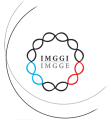Tiny creatures reign in our kitchen drain
Society for Applied Microbiology, 2022-2023
Principal Investigator: Dr Sanja Jeremic, IMGGE
Participant from IMGGE: Dr Aleksandra Nikolic
High school students will be stimulated to get involved in an experiment designed to isolate and characterize bacteria capable of growing in high detergent concentrations through the activity that involves the following steps:
1. Supervised by parents the students will sample water from their kitchen drains using inexpensive materials available in households;
2. Supervised by teachers the students will cultivate bacteria from their water samples on a medium with high detergent concentration to select bacteria that can degrade these chemicals;
3. Teachers will select a few samples to represent their school and the project coordinator will organize their shipment to laboratory;
4. The students with teachers will participate in an online workshop that will demonstrate and explain the laboratory processing and molecular analysis of the samples they have provided.
At the beginning of the project, the coordinator will contact the schools directly to get their expression of interest in participating and connect with a designated contact person from the school. The document with explanation of the project structure along with the instructions for sampling, bacterial cultivation and selection of samples will be provided to each interested school. The schools will organize the participation of a group of students, either from a selected class or through thematic sections/clubs (biology or chemistry). Each school will select three samples of cultivated bacteria for shipment to the project coordinator. The samples will be analyzed in the project coordinator's institution with interested parties following this process online, in a form of workshops that will consist of the introductory lecture about use of microorganisms in biotechnology and the application of detergent-degrading bacteria in water remediation, live demonstration of the DNA extraction and analysis of the samples collected by schools, and the discussion involving all workshop participants. Several schools per workshop will be included so that students can exchange their experiences and perceive their work as a part of a larger research project that leads to a biotechnological solution that could improve water quality and thus contribute to the global economy.


